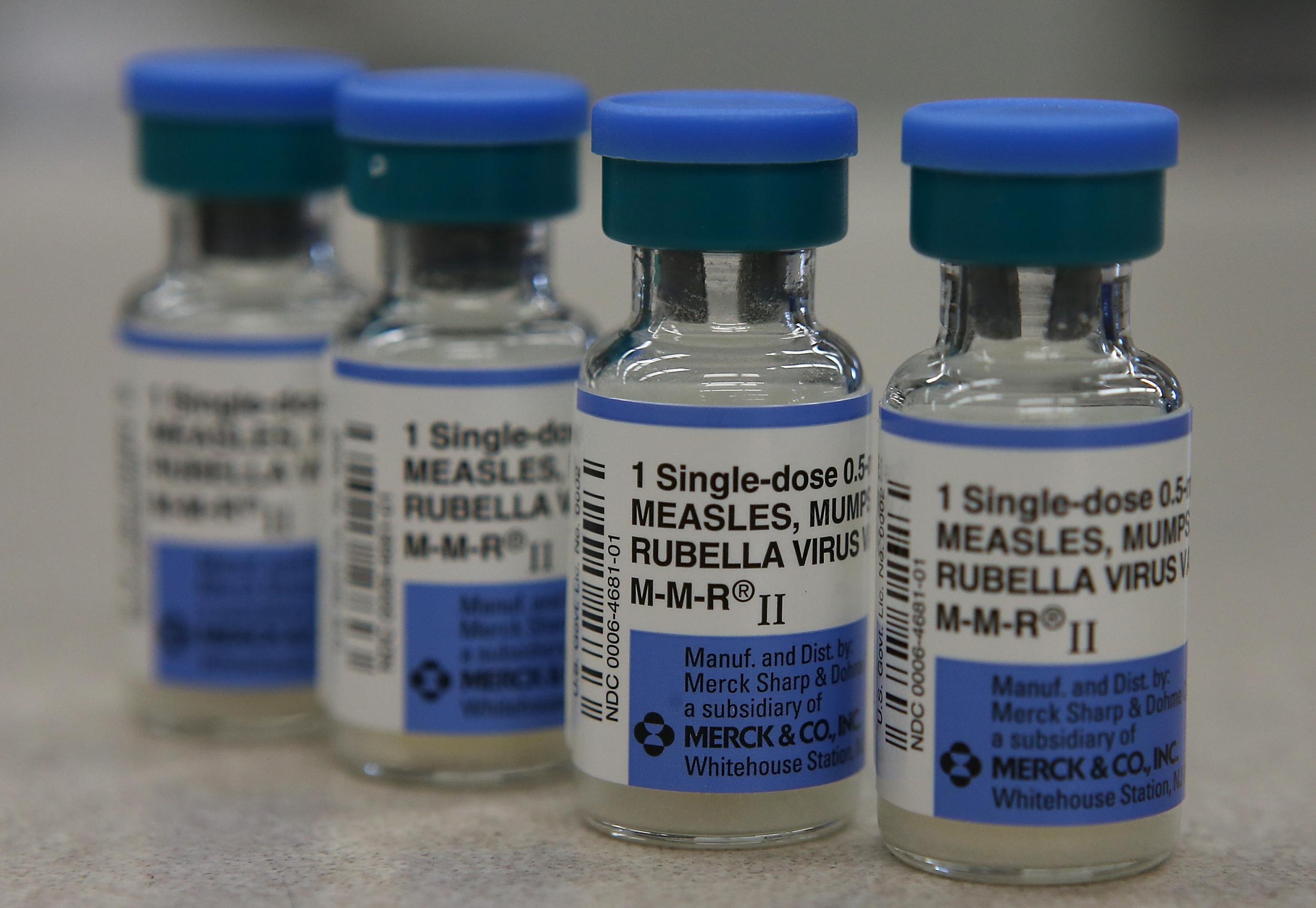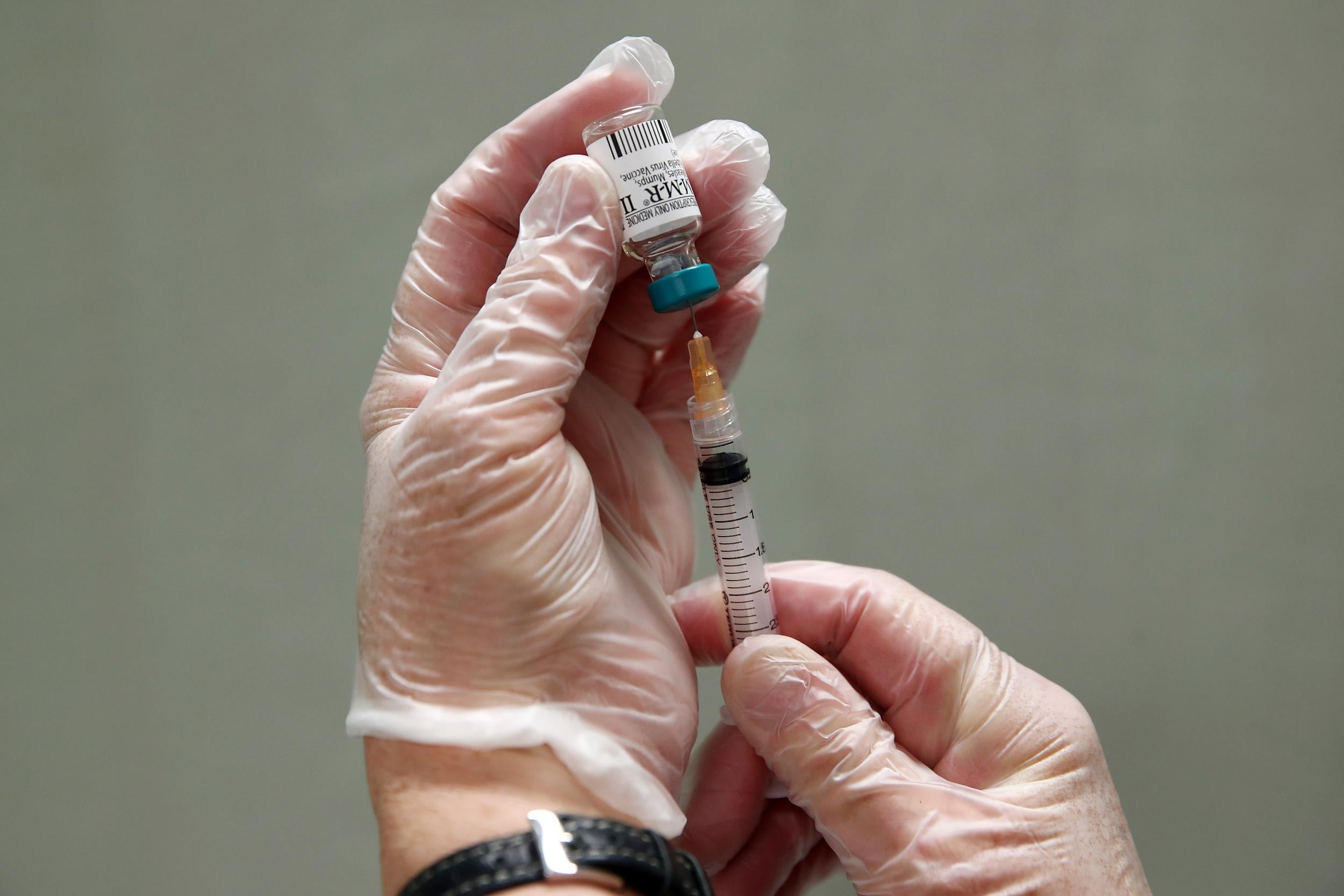Measles crisis killed more than 140,000 last year with majority of victims aged under five
Cases doubled between between 2017 and 2018, reports say

Your support helps us to tell the story
From reproductive rights to climate change to Big Tech, The Independent is on the ground when the story is developing. Whether it's investigating the financials of Elon Musk's pro-Trump PAC or producing our latest documentary, 'The A Word', which shines a light on the American women fighting for reproductive rights, we know how important it is to parse out the facts from the messaging.
At such a critical moment in US history, we need reporters on the ground. Your donation allows us to keep sending journalists to speak to both sides of the story.
The Independent is trusted by Americans across the entire political spectrum. And unlike many other quality news outlets, we choose not to lock Americans out of our reporting and analysis with paywalls. We believe quality journalism should be available to everyone, paid for by those who can afford it.
Your support makes all the difference.A global measles crisis caused more than 140,000 deaths last year, with most of them children under the age of five, figures suggest.
A new report from the World Health Organisation (WHO) and the US Centres for Disease Control and Prevention (CDC) said the “unprecedented global measles crisis” is set to enter its third year, with no signs of improvement.
Parents are being urged to vaccinate their children where vaccines are available, including the UK, while efforts are stepped up to vaccinate youngsters in countries without ready access to the jabs.
Unicef said poor vaccination coverage had led to “devastating measles outbreaks in many parts of the world – including in countries that had high coverage rates or had previously eliminated the disease”.
While conflict, security or a breakdown in services are making it hard to vaccinate children in some remote areas, some “parents are not vaccinating their children due to complacency, mistrust or misinformation about vaccines,” it said.
The report found measles cases globally more than doubled in 2018 compared with 2017, and are rising still.
Five countries – the Democratic Republic of Congo, Liberia, Madagascar, Somalia and Ukraine – accounted for half of measles cases in 2018.
Measles has killed nearly 5,000 people in the Democratic Republic of Congo so far in 2019, while close to a quarter of a million people have been infected.
The UK lost its measles-free status in August amid a rising number of cases at home.
The total number of laboratory-confirmed measles cases in England in 2018 was 971, more than three times the 259 cases in 2017.
From January to June this year, a further 532 cases have been reported in England.
Across England, there has been a drop in vaccination rates for all nine vaccines given to children before the age of five, including the measles, mumps and rubella (MMR) jab.
Liam Sollis, head of policy and advocacy at Unicef UK, said: “This data shows the stark global impact of this devastating and entirely preventable disease.
“With vaccination rates in the UK falling and recently losing our measles-free status, an outbreak is now a ticking time bomb.
“Vaccines are the safest and most effective preventative measures against highly infectious disease, but currently too many children are being put at unnecessary risk – with half a million children in the UK unvaccinated against measles.
“It’s crucial to build trust with parents and improve access to vaccine services.
“No child should be denied their right to be protected from vaccine-preventable disease.”

Tedros Adhanom Ghebreysus, director-general of the WHO, said: “The fact that any child dies from a vaccine-preventable disease like measles is frankly an outrage and a collective failure to protect the world’s most vulnerable children.
“To save lives, we must ensure everyone can benefit from vaccines – which means investing in immunisation and quality healthcare as a right for all.”
Dr Charlie Weller, head of vaccines at Wellcome in London, said: “It is a tragedy that so many children are dying from measles and that we are seeing a rise in cases in so many countries.
“We have a safe and effective measles vaccine that has saved millions of lives to date and is now available to record numbers of children.
“If we are to protect lives, we must understand and address the reasons why measles vaccine uptake is lower than required to achieve herd immunity and prevent outbreaks.
“In particular, these latest figures from the WHO underline the urgent need for an increased focus in low-income regions to ensure vaccines reach those who need them the most.”
More than an estimated 19 million children worldwide did not have the first dose of the measles vaccine by their second birthday in 2018.
Press Association
Join our commenting forum
Join thought-provoking conversations, follow other Independent readers and see their replies
Comments